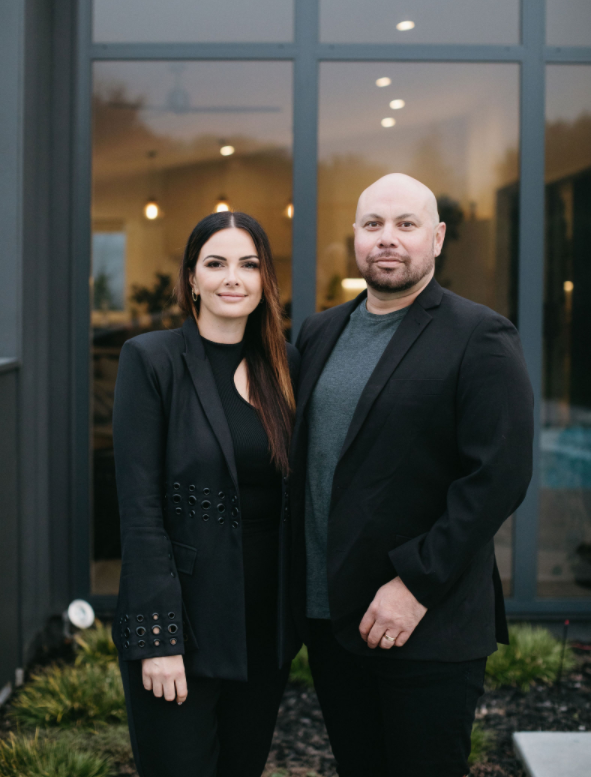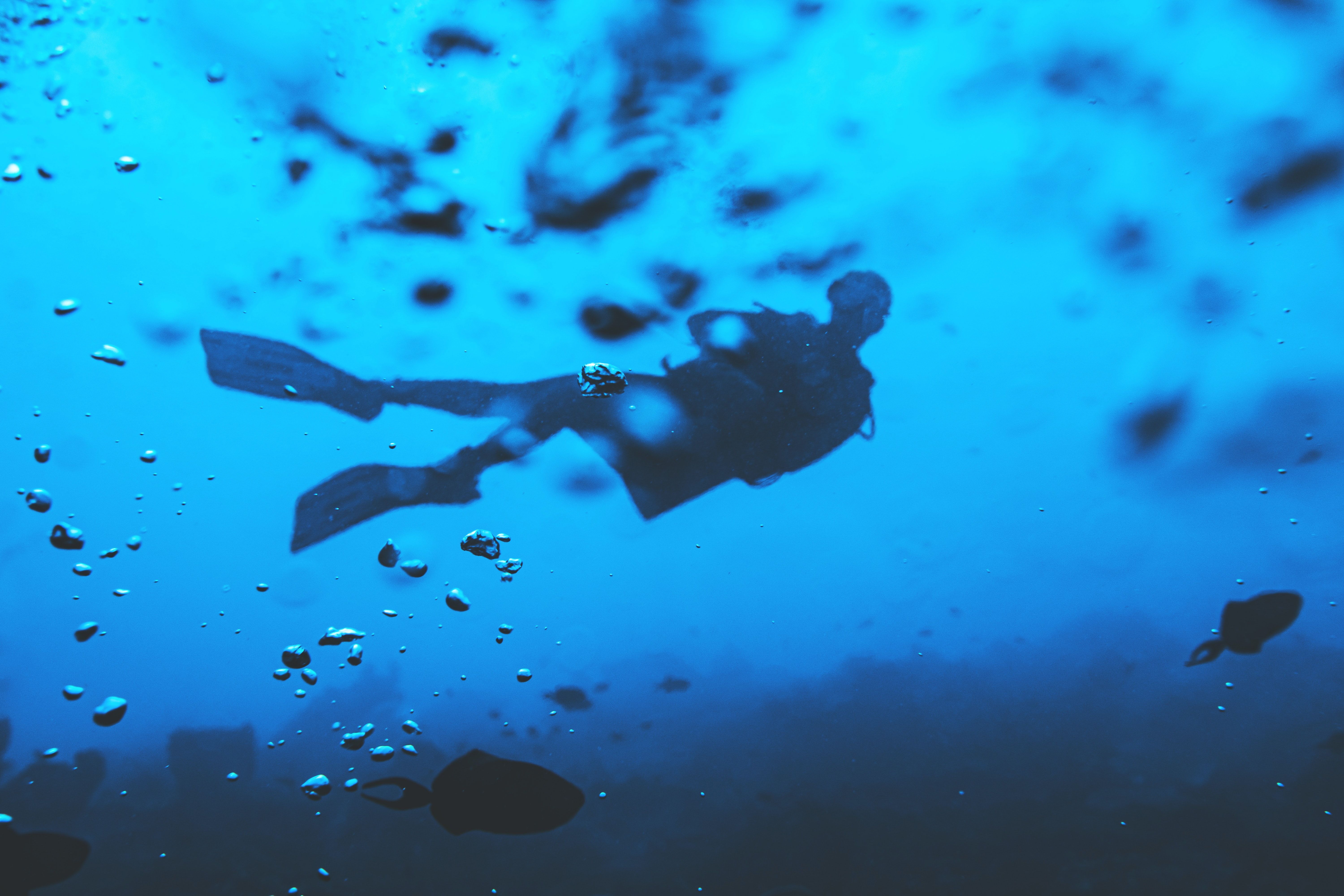Deep Dive Division
16th Jul 2021, by AmotaiDeep Dive Division
When the Hollywood director James Cameron picks you to work on one of his movies, you know you’re doing something right.
Deep Dive Division, which has been working on Cameron’s Avatar sequels, provides a wide range of underwater services, from construction and infrastructure inspection to environmental testing and biosecurity.
“Making the invisible visible is what we like to do for our clients,” says Tua Karalus, co-founder of the company with his wife, Courtney (Ngāti Hauā, Waikato Tainui).

Two’s Company
The couple started Deep Dive Division in 2018, having spotted a gap in the market for a company where commercial diving meets environmental science
Tua, who is of Samoan and European descent, has a background in commercial diving and environmental science, while Courtney has spent the last nine years working in media, marketing and business strategy. Their respective skills dovetail nicely.
“My experience is in marketing and branding, so I love thinking laterally to ensure innovative and effective outcomes,” explains Courtney. “And I’m used to partnerships, diversity and disrupting, which is what the dive industry needs”.
Tua remembers seeing Courtney at work, dressed in business attire, during Deep Dive Division’s first big meeting with an energy company.
“I looked at Courtney and I thought, ‘This is commercial diving, you are dressed for the board room not the boat ramp,’ but she absolutely smashed it. Courtney brings a lot of that high-end skills, knowing what to say and thinking about better delivery, whereas I’m about the operations, science and culture, so I have formulas in place to deliver on the technical side and build an expert team.”
A Holistic Perspective
As well as more than 16 years’ diving experience, Tua brings his scientific training and an abiding passion for the environment to Deep Dive Division’s work.
“Tua sees things from an holistic point of view,” says Courtney, “why things are happening as a part of a whole ecosystem. It’s more than just seeing things one-dimensionally and putting a band-aid on that problem.”
When she entered the industry, Courtney was underwhelmed by the general scarcity of the dive industry to engage with Māori protocols, and Tua agrees.
“Deep Dive Division is different,” he says. “Wee understand how important the the land and sea are to who we are as people. They are part of us, we are connected and we need to participate to protect them.”
“It’s important to understand the way Māori view the land and environment,” Courtney says. “I think our clients are becoming more open to sustainable and cultural solutions, and I think there’s a mandate where everyone needs to look at the importance of Māori as tangata whenua and the relationship that each iwi has with the land.”
For Tua, mātauranga Māori and Western science are complementary.
“I think you bring the cultural processes in – the feeling and connection to the environment – and then you dive a bit deeper. So you begin by caring, and then you look closer to make sure the work serves purpose environmentally now and for the long term.”

A Sense of Trust
Working from a te ao Māori perspective makes a difference to Deep Dive Division’s clients, too.
“From an operational point of view,” says Tua, “when clients come to a work site, they enjoy the family environment. We come together to do a health and safety briefing but we also cook a feed, we share, we kōrero, and while we’re eating we learn from each other. That creates a strong connection with clients and a sense of trust.”
The sort of work Deep Dive Division does requires that trust.
Courtney: “If you paid us to build a fence you’d come home at the end of the day and see it done. With diving, you’re not going to go down 50m to make sure.”
Tua and Courtney support their clients’ trust with evidence, capturing video data to arm people with as much information as possible. While evidence-based reporting is standard in the industries Courtney has come from, it’s not common practice in the dive sector.
“I said to Tua that we need to offer our clients accurate and real-time video so they know the work is done and so they can keep an eye on changes in the environment.”
Safety First
Diving is a dangerous occupation but the company has a reputation for a zero-compromise approach to keeping its people safe and ensuring Health and Safety practices are always to optimum standards. Whoever Deep Dive Division brings in on a job, they are conscious of underwater safety. As a result, divers are keen to work for Tua and Courtney.
Na’vi Divers
Tua thinks it’s this reputation that resulted in Deep Dive Division being approached to work on the Avatar sequels.
“I guess they did their due diligence,” he says. “We’ve overseen all the safety for the in-water shoots. It was quite an experience and we saw it as a good synergy between what we do and the themes of the movies in terms of sustainability.”
Asking for Help
Tua says it was an honour to be asked to participate in the films. Similarly, he believes it’s important for new businesses not to be afraid to ask for help.
“I am a big believer in personal development and surrounding yourself with people who make you better and who you can learn from,” he reasons, mentioning key people in the Ngāti Hauā Mahi Trust, the Waikato River Authority, and Waikato Tainui who have been open to connecting with Deep Dive Division and listening to their kaupapa.
“To go fast you go alone, to go far you go together,” Tua says. “That’s so relevant when it comes to protecting the environment – partnering with others and participating in wider discussions to deliver a holistic result.”
Courtney agrees. “Our vision is to create a symbiotic relationship between people and the environment, and every day we take small steps to do that with like-minded people. We all need to remember that water is our lifeforce, and the quality of the water reflects the quality and health of the environment.”